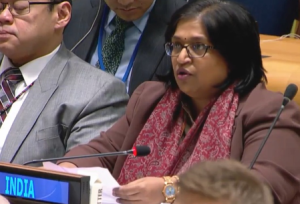Reeves vows against austerity, but doubts remain.

Let me start by saying, there was indeed plenty to be pleased about. In the lead up to Labour's Budget, there was a lot of buzz about it being a significant financial statement that would shape our country's future for decades to come. After 14 years of Conservative Party underfunding, which has caused a crisis in our public services, we were in need of a strong vision. However, what we got was a scattered assortment of promises that barely scratched the surface of the long-term change that people voted for in July.
Let's take a look at what Chancellor of the Exchequer Rachel Reeves promised this week. After a burst of spending in the next year, the increase in funding will slow down significantly. A growth in real terms spending on public services of only 1.5% a year after next year will hardly make a dent in the needs of our public services, which have been severely neglected over the past 14 years.
It's safe to say that this doesn't seem like a plan for long-term transformation to build a sustainable economy for the future. But don't get me wrong, there were some positive aspects. It was right to set aside money to compensate the victims of the infected blood scandal and the Post Office Horizon scandal. It was also a step in the right direction for the Chancellor to change the self-imposed fiscal rules, allowing for more borrowing to invest in infrastructure.
However, this Budget seemed to give with one hand and take away with the other, all too often. While there is a substantial investment in the NHS, mainly for diagnostic services, it comes at the cost of withdrawing the winter fuel allowance for millions of pensioners. This will leave many unable to heat their homes, making them more vulnerable to illness. Additionally, the funding for social care is inadequate and shows a lack of joined-up thinking.
The increase in funding for schools is also welcome, as it acknowledges the dangerous state of many school buildings that were constructed with hazardous concrete. I was also pleased to see the Chancellor recognize the unmet needs of families with SEND children, with a £1billion increase in funding. However, I fear it may not be enough.
But let's not forget that the Government chose not to lift the two-child benefit cap, which pushes 300,000 children into poverty. The minimum wage is increasing, but the rise in employers' national insurance and lowering the threshold at which they have to pay it will place a heavy burden on small and medium-sized businesses, which are the backbone of our economy, providing over 16 million jobs. The increase in bus fares will also make it more costly for the most vulnerable to commute to work.
Now, let's talk about the crucial green transition to a thriving, sustainable economy. In the past, Conservative budgets rarely mentioned the word 'climate' at all. Unfortunately, Rachel Reeves continued this trend. The climate and nature crises were barely addressed, despite their significant impact on our economy in the coming years. To make matters worse, the money to deal with one of the most pressing impacts of climate breakdown - flooding - is up for review and may be cut.
As an MP for a rural constituency that is regularly affected by flooding, this is deeply concerning. The Chancellor's plan involves significant increases in capital and day-to-day spending, particularly in the upcoming year, with the hope that a growing economy will help pay for it.
However, she has disregarded where the wealth lies in Britain. The wealthiest 10% of the population own around half of all wealth, much of which is taxed at a lower rate compared to ordinary working people. It seems that the Chancellor is more concerned about the possibility of multimillionaires and billionaires leaving the country than asking them to pay a little more in taxes so that everyone can benefit from improved public services.
While capital gains tax is increasing, there is still a significant gap between the tax paid on income from work and income from wealth. The rise in employers' national insurance contributions means that the majority of the funding for increased public spending will come from taxes on work, rather than wealth.
Rachel Reeves stated that there will be no return to austerity. However, based on her plans, it's uncertain whether she's correct. Do you have a story you'd like to share? I'd love to hear from you. Share your views in the comments below.










